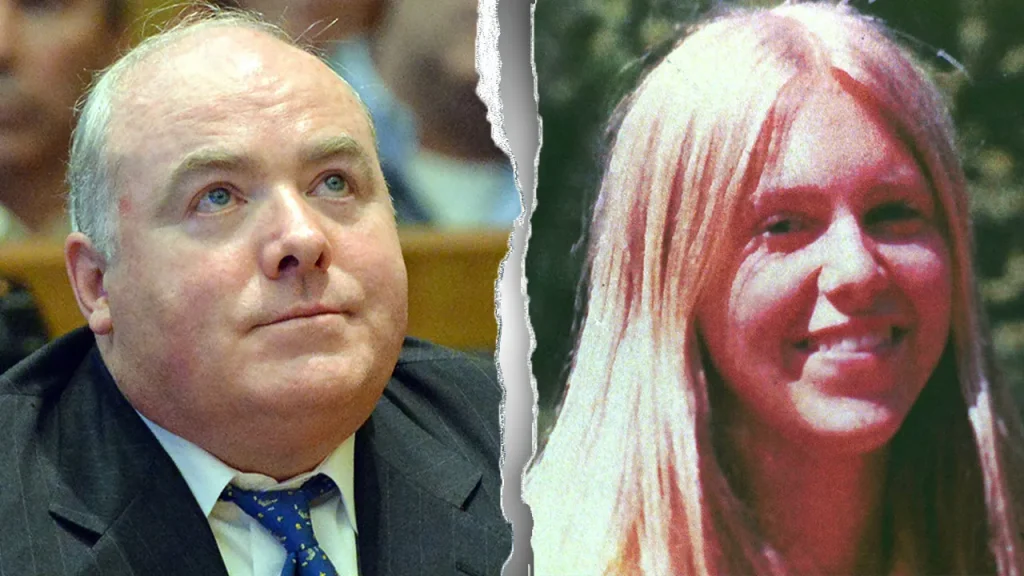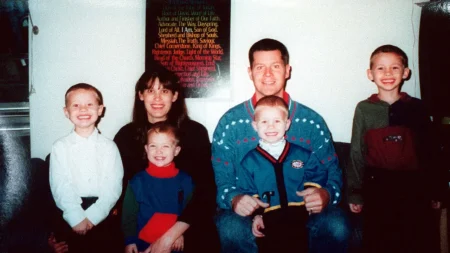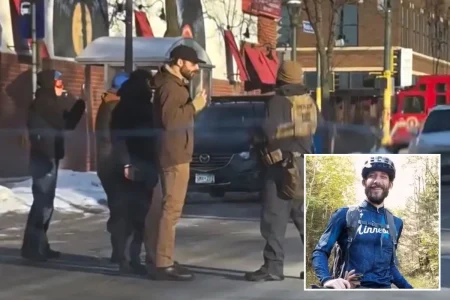The Martha Moxley Murder: 50 Years of Questions Surrounding a Kennedy Relative
Half a century has passed since the tragic murder of 15-year-old Martha Moxley shook the affluent community of Greenwich, Connecticut. The case, which involved Michael Skakel, a cousin of Robert F. Kennedy Jr., continues to raise questions about justice, privilege, and truth. After spending 11 years in prison for Moxley’s murder, Skakel’s conviction was eventually overturned, leaving many to wonder if justice was truly served. Now, for the first time since his release, Skakel is sharing his perspective in a new NBC News podcast titled “Dead Certain: The Martha Moxley Murder,” offering listeners a rare opportunity to hear his account of that fateful night and its aftermath.
The events of October 30, 1975—known as Mischief Night, the evening before Halloween—began innocently enough with teenagers engaging in neighborhood pranks. Martha Moxley was among them, reportedly flirting with Thomas Skakel, Michael’s older brother, with witnesses seeing them “falling together behind the fence” near the Skakel family pool around 9:30 p.m. The following day, however, brought horror to the community when Martha’s body was discovered under a tree on her family’s estate. She had been brutally beaten and stabbed with a golf club that was later traced to the Skakel household. The crime scene was particularly disturbing, with Martha’s pants found around her ankles and the broken golf club nearby. The violence of the attack shocked the quiet community and set in motion an investigation that would span decades, touching on themes of wealth, influence, and family loyalty.
The investigation initially focused on Thomas Skakel and later the family’s live-in tutor, Kenneth Littleton, but neither was ever charged. Fifteen years would pass before authorities turned their attention to Michael Skakel, who surrendered to police on January 19, 2000, following the issuance of an arrest warrant. The case presented unique challenges for prosecutors, as Wendy Murphy, a professor at New England Law Boston, explained: “This is what I call the cross-finger pointing problem, when only two people in the family are the suspects. In the whole world, we only have these two suspects and they’re family, so they stick together like glue. [If] they both take the Fifth and they agree to be each other’s built in reasonable doubt, you’ve got a problem.” Despite these challenges, Michael Skakel, then 39, was charged with murder and initially arraigned as a juvenile since he was 15 at the time of the killing, though the case was later moved to regular court. During his arraignment, Skakel approached Moxley’s mother and told her, “You’ve got the wrong guy,” maintaining his innocence from the beginning.
The trial culminated in June 2002 when a jury convicted Skakel of murder, resulting in a sentence of 20 to life in prison. However, the conviction was controversial, coming nearly three decades after the crime. As John Clendening, author of “Julia’s Angels,” pointed out, “When he was convicted, it was 27 years after the murder. So, just imagine you being called as a witness in a trial in 2002. How much do you really remember about a certain night when you were 15, 16, or 17?” This significant time gap raised questions about witness reliability and memory, along with concerns about the adequacy of Skakel’s defense. After multiple failed appeals, Skakel was granted a new trial in 2013 when a judge ruled that his attorney, Michael Sherman, had provided inadequate representation. This ruling eventually led to the Connecticut Supreme Court vacating his murder conviction in May 2018, and prosecutors ultimately decided not to pursue a second trial.
The overturning of Skakel’s conviction has not brought closure to Martha Moxley’s family. Her brother, John Moxley, has been vocal in his belief that Skakel is guilty regardless of the court’s decision. “Just because he’s out on the street doesn’t mean what we know isn’t right,” he stated in a documentary about his sister’s life and death. “Where we are now is that it’s all about judges and technicalities. It’s not about who killed Martha.” For the Moxley family, the legal proceedings have moved away from the central question of who killed Martha to focus instead on procedural issues and legal technicalities. John Moxley added poignantly, “At this point, him being out doesn’t change anything for me. And he’ll be in prison for the rest of his life regardless of where he’s walking the streets. He will be in his own prison for the rest of his days.” These statements reflect the enduring pain and frustration experienced by those closest to Martha, who continue to seek a sense of justice that the legal system has not provided to their satisfaction.
As Skakel breaks his silence through the new podcast, the public will have a rare opportunity to hear directly from someone who was at the center of one of America’s most notorious murder cases. Clendening suggests that Skakel’s motivation for speaking now is straightforward: “I think what’s going on here is [Skakel] sees an opportunity to get his side of the story out there, and I can’t blame him for that at a time when the world is revisiting the crime. He’s only going to have so many opportunities to do that. So I think that’s what’s going on. I think he sees an opportunity to tell his side of the story.” Whether Skakel’s account will shed new light on the case or simply reinforce his claims of innocence remains to be seen. What is certain is that fifty years after Martha Moxley’s murder, the case continues to captivate the public imagination, raising profound questions about wealth, privilege, the nature of memory, and the sometimes elusive quest for justice in America’s legal system. Martha’s story, and the controversy surrounding it, serves as a sobering reminder that for the families of victims, the pain of loss is compounded when the full truth remains obscured by time and circumstance.











